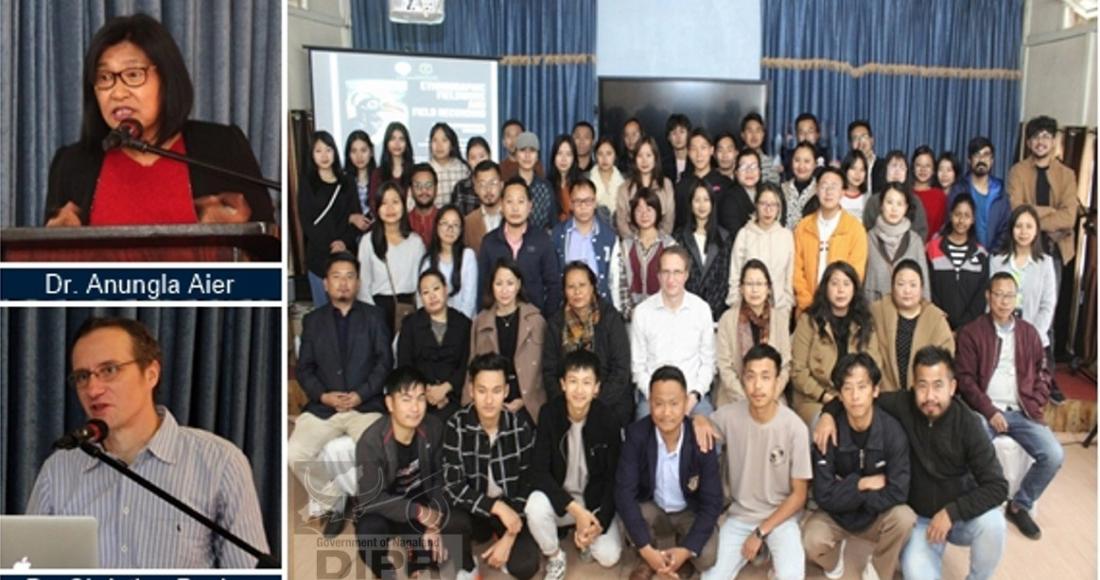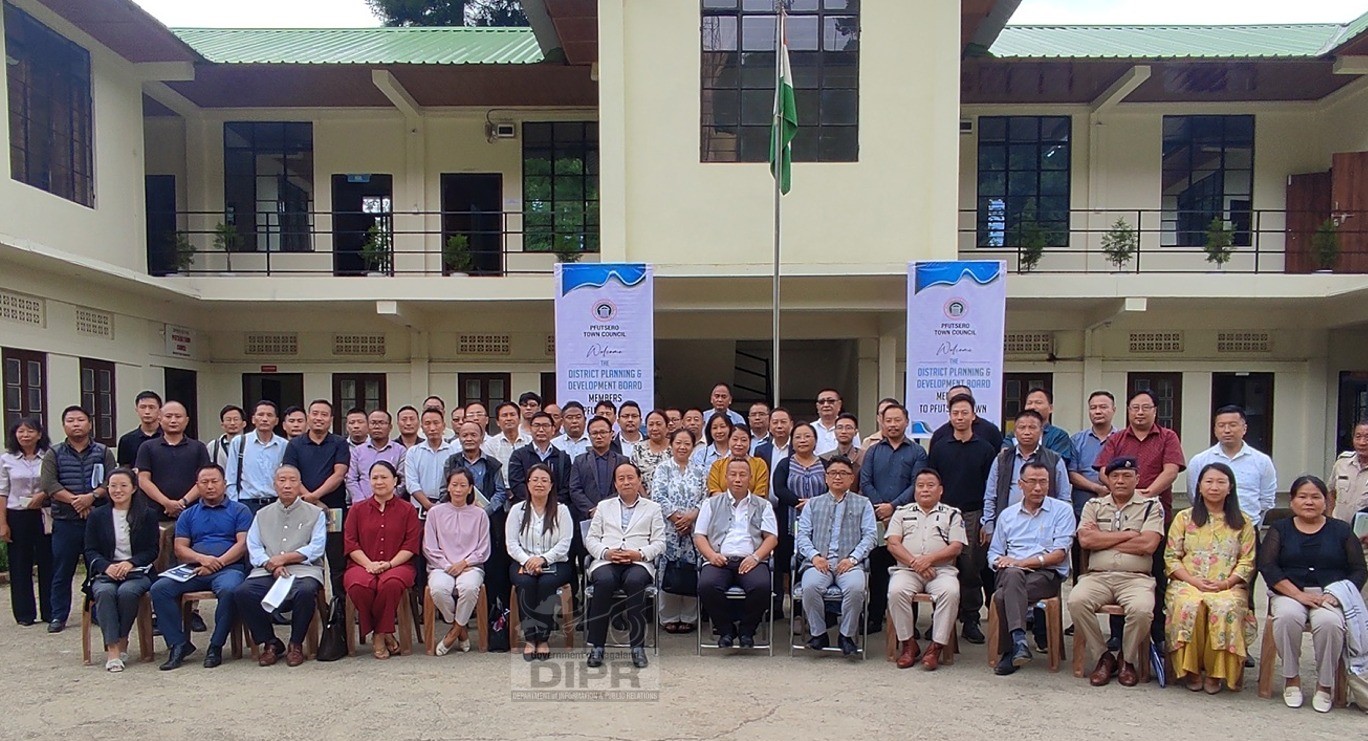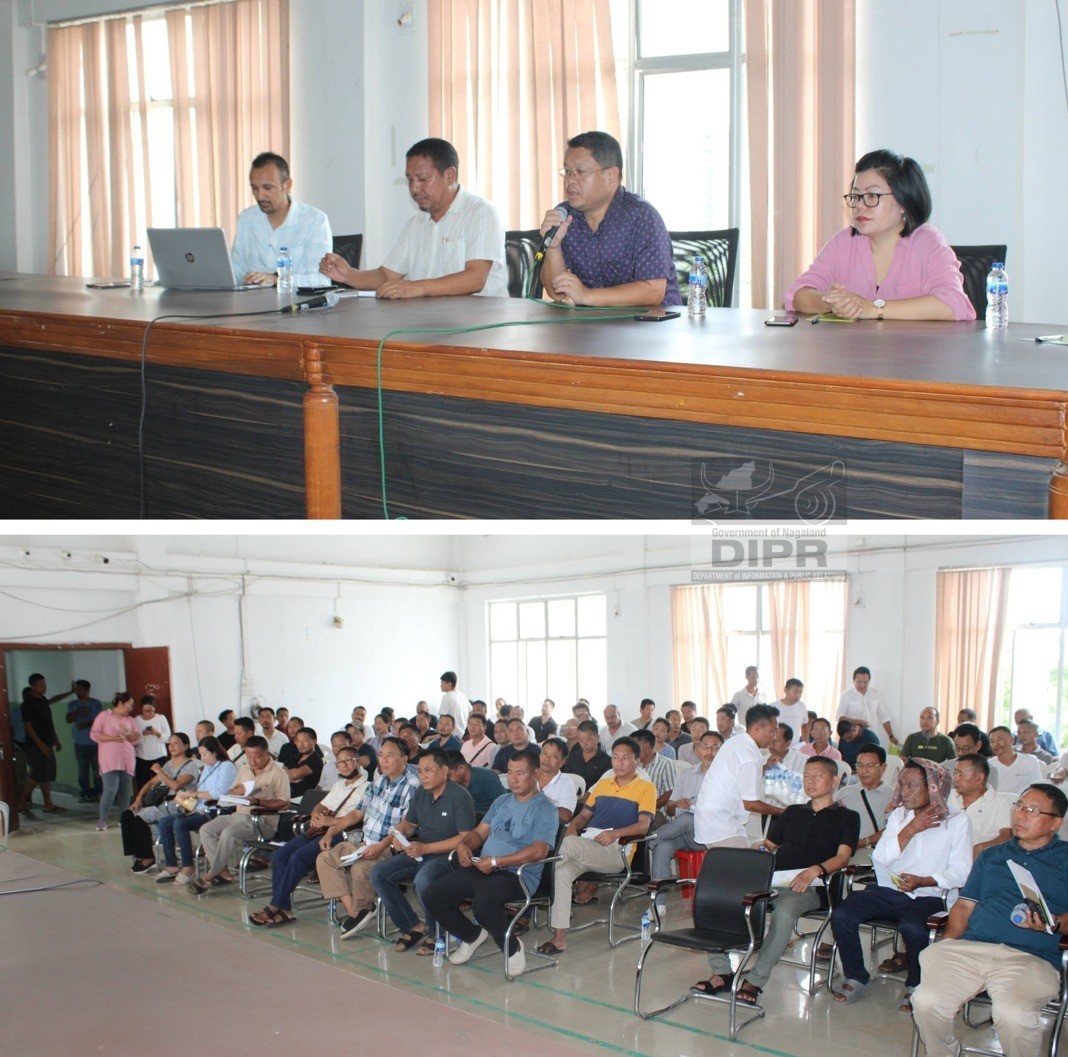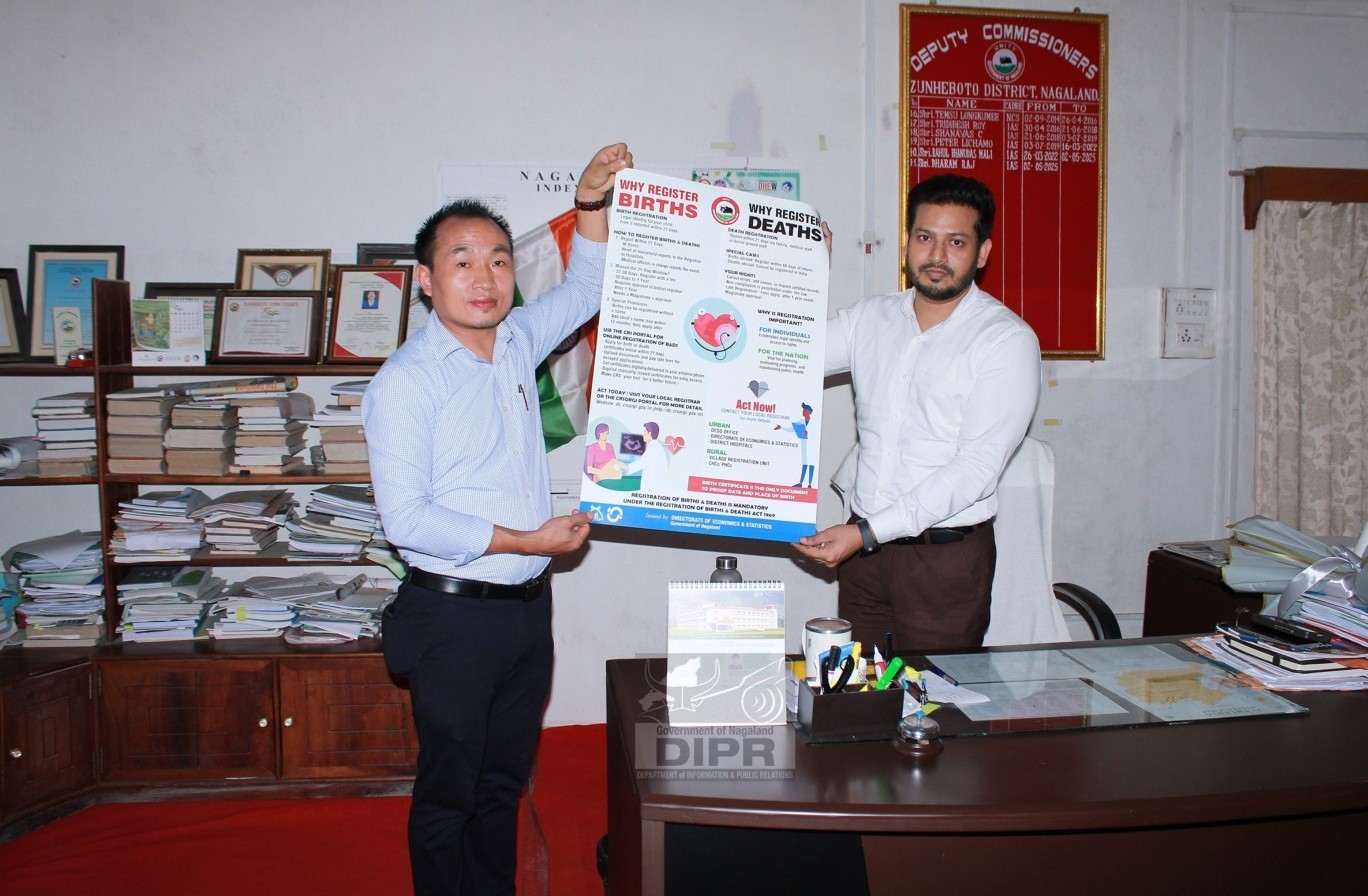A two-day international workshop on “Ethnographic Fieldwork and Field Recording” was held at Kohima Science College, Jotsoma on 29 & 30th March 2023, organized by the Department of Anthropology. The workshop was funded by the Department of Anthropology, Kohima Science College Jotsoma, The Highland Institute Kohima, Anthropological Society of Nagaland Kohima, and Firebird Foundation for Anthropological Research, USA.
Dr. Anungla Aier, a renowned Naga anthropologist, former principal of the college, retired director of the Department of Higher Education, Government of Nagaland, and a recipient of the Governor Gold Medal, Nagaland, delivered the keynote address. While Dr. Christian Poske, an ethnomusicologist who has worked extensively on the performing arts of eastern and northeastern India and Bangladesh, and a fellow at the Highland Institute, Kohima, was the resource person for the workshop.
Dr. Anungla Aier delivered her keynote address on “Fieldwork among Indigenous Communities”. Speaking on the uniqueness of indigenous communities, she underscored the importance and relevance of ethnography as a method and as a product in understanding and revealing the tacit knowledge and experiences of the indigenous communities.
She highlighted the importance of the ethnographic method as a qualitative research method and its wide applicability and usefulness not only in anthropological research but also in other social science disciplines including market research appraising the edge of the ethnographic method. According to Dr. Aier, the ethnographic method allows one to immerse into the community and understand the inner workings and universe of the culture. She also shared her experiences from the numerous fieldwork she has conducted with the participants as well as the ethical issues associated with field research. Dr. Aier concluded her address by exhorting the ethnographer to become a “learner” and not a “teacher”.
Dr. Christian Poske delivered his first address on “Ethnographic Fieldwork in Ethnomusicology” highlighting the close relationship between ethnomusicology and anthropology. He mentioned that ethnomusicology is the study of music in its social and cultural context and examining the social, cultural, economic, and political implications of music in a community and the wider society. Following this Dr. Poske conducted six sessions each followed by a group activity session. The sessions focused on the technical aspects of conducting research work and imparting hands-on training on handling different tools and devices for collecting and recording data. The sessions dwelled on topics such as Participant observation and interviews, research ethics and informed consent, audio and video recording practice, data management, and cataloging field recordings.
Welcome note was delivered by Kevilhuninuo Nagi, Head of Department, Department of Anthropology. The workshop was attended by students, research scholars, and faculties from different colleges and universities across India. Conclusion and final comments were delivered by Dr. Rose Yhome of The Highland Institute, Kohima while the vote of thanks was delivered by Moarenla Longkumer, Assistant Professor, Department of Anthropology, Kohima Science College, Jotsoma.
(DIPR)





